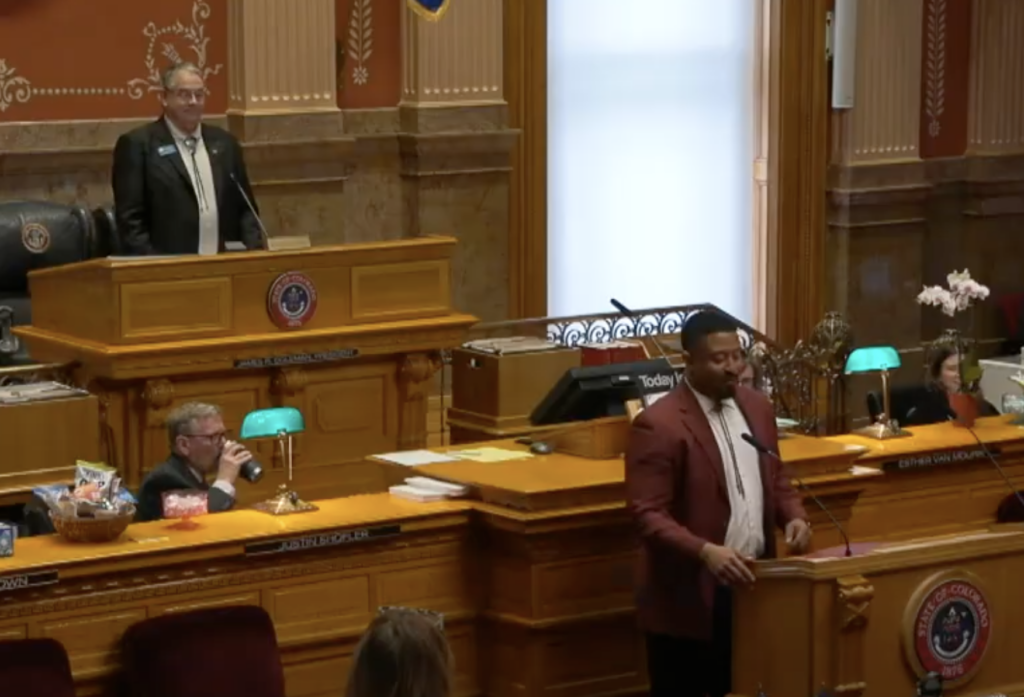Ex-DPS officer not eligible for unemployment benefits after texting N-word to boss, appeals court says
A former Denver Public Schools safety officer who was fired for sending an administrator the N-word in a text message is not eligible for unemployment benefits under state law, Colorado’s second-highest court agreed on Thursday.
Shelly Wright maintained she had not purposefully sent the slur, but rather used voice-to-text under “bright sunshine” and had not seen until later that her phone mistranslated what she said. But state officials determined Wright’s intent was irrelevant, and a three-judge panel for the Court of Appeals upheld the conclusion that Wright’s own conduct led to her firing.
“The hearing officer, after reviewing all the evidence in the record, evaluated the entire context of Wright’s employment history before determining that Wright’s explanation of the text message was not credible,” wrote Judge Terry Fox in the panel’s May 11 opinion. “We hold that the hearing officer’s conclusions — including that a reasonable person would not have countenanced Wright’s language and behavior — are supported by substantial evidence.”
In Colorado, employees who are separated from their jobs are disqualified from receiving unemployment benefits under several scenarios. “Rudeness, insolence, or offensive behavior” that cannot reasonably be “countenanced” by supervisors falls among the reasons to deny payment.
Wright was a safety officer at DPS between August 2010 and March 2022. On March 3 of last year, Wright was working at an unspecified elementary school when she noticed a woman on school grounds who she did not recognize and who had no visitor badge displayed.
Wright approached the woman, who was Black, and asked why she had not signed in. The woman was allegedly “snippy” and “had an attitude.” An employee informed Wright that the woman belonged to a racial equity group that visits the school.
After a second Black woman joined the first woman, Wright used voice-to-text on her phone to send a message to the assistant principal. She reportedly “couldn’t see a thing” due to the sunlight.
“At your convenience could you please text me the spelling of the lady’s name that supposedly comes here every Thursday,” Wright wrote. “She’s a (N-word) an attractive black woman.”
The school district fired Wright days later.
In applying for unemployment benefits, a hearing officer found Wright’s behavior fit the legal threshold for rudeness and offensiveness that a reasonable supervisor would not countenance. Further, the act of sending the message was within Wright’s control, and her intent — Wright claimed she meant to type the word “bigger” — was irrelevant.
“I am a Jewish 65 year old woman,” Wright, representing herself, wrote to the Court of Appeals. “I am very mindful of racism and anti semitism.”
She acknowledged her intent did not matter, but reiterated that her text message meant to describe the “bigger, attractive black woman” because there were two Black women present. Wright also “showed many coworkers, friends, & family the evidence in this case,” all of whom reportedly thought her firing was disproportionate to the “technological mistake.”
In determining the hearing officer reached the correct conclusion, the Court of Appeals panel noted Wright had received additional training and reprimands on multiple occasions due to her “racially insensitive” conduct. In one instance, she repeated the N-word after two students said it, prompting further training for Wright.
“At the hearing, Wright testified that ‘I’ve never said the N-word. I was not brought up like that. I think it’s offensive’,” wrote Fox. “However, Wright admitted she had been spoken to before about making racially insensitive remarks.”
The case is Wright v. Industrial Claim Appeals Office et al.
















